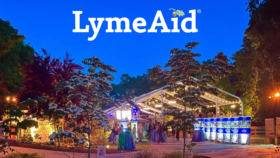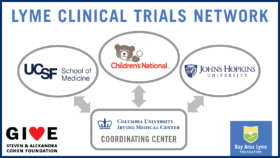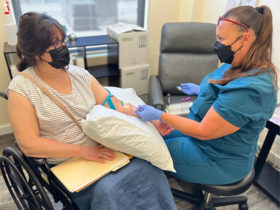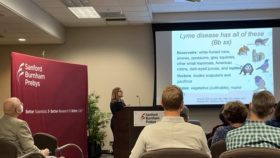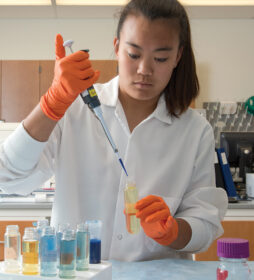FOR IMMEDIATE RELEASE
Bay Area Lyme Foundation Celebrates Its 10th Anniversary with a Convergence of Scientists, Clinicians, Patients, and Celebrity Talent
BAL honors the 2023 Younger Family Emerging Leader Award Winner, announces iHeartRadio partnership and acknowledges the perseverance of patients with persistent Lyme disease
PORTOLA VALLEY, Calif., June 13, 2023—Bay Area Lyme Foundation, a leading sponsor of Lyme disease research in the US, celebrated its 10th anniversary in May at LymeAid ®, its preeminent annual fundraising event, and announced Andriy Batchinsky, MD, as the winner of a $150,000 Younger Family Emerging Leader Award. A supportive audience of scientists, clinicians, patients, and philanthropists celebrated progress and commitment to ongoing research into tick-borne diseases, and iHeartRadio announced a partnership in honor of beloved DJ and radio host Jeffrey Vandergrift (“JV”), who passed away with Lyme disease earlier this year. LymeAid raised $683,000 of which 100 percent goes directly to fund scientific research, education, and prevention programs for Lyme disease, a potentially disabling infection that impacts an estimated half a million Americans each year.
Emmy-award winning comedian Dana Carvey, Master of Ceremonies for the event, was joined by The Bacon Brothers and local San Francisco band Pop Rocks, who were the musical guests for this evening of laughter, dining, and dancing to support cutting-edge discoveries and scientific breakthroughs. The fund-a-need for this event was Lyme Disease Biobank, a Bay Area Lyme Foundation program initiated in 2014 to collect and distribute blood, urine, and tissue samples for investigators working on developing diagnostics and treatment for tick-borne diseases.
“This is an amazing time for infectious disease research, offering great hope for patients. While we have made strides, our work is not done. We need to figure out the underlying cause of persistent Lyme disease and find a solution,” said keynote speaker Bill Robinson, MD, PhD, chief of the Division of Immunology and Rheumatology at Stanford University, who shared ongoing research exploring ways to weaponize antibodies against persistent Lyme disease.
